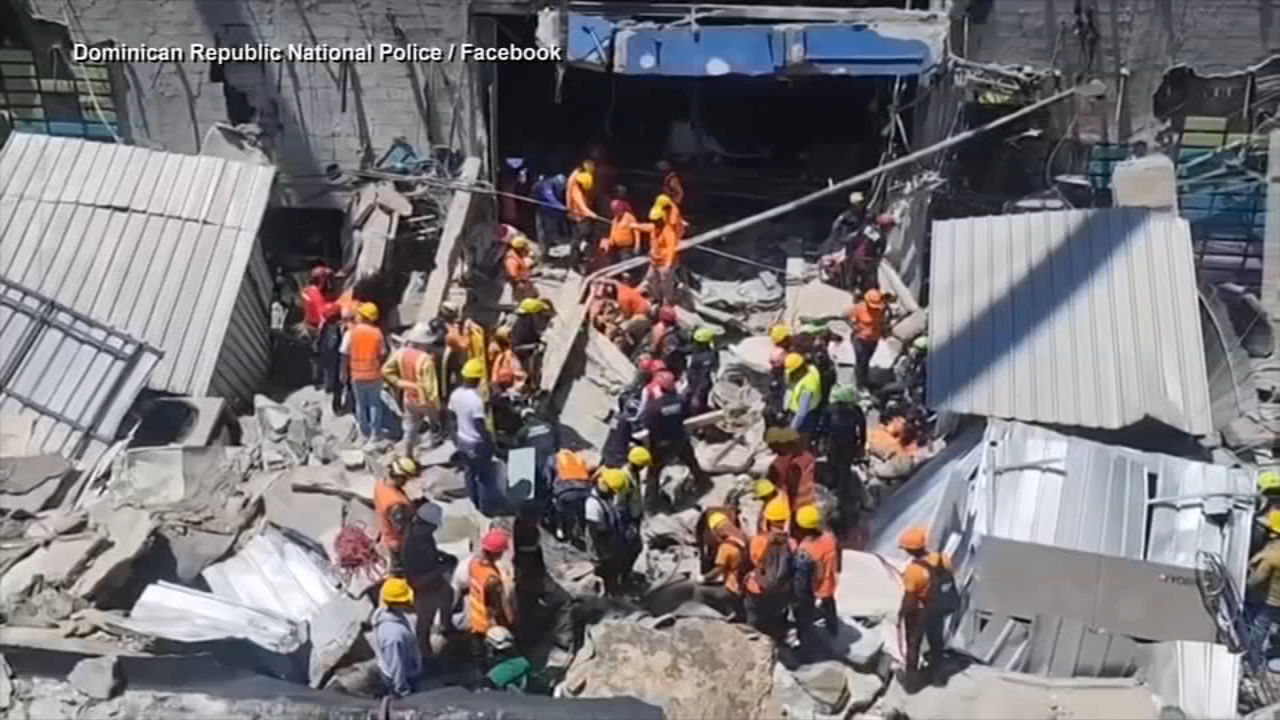Coronavirus News: New York City protests haven't caused spike in COVID-19 cases
NEW YORK CITY (WABC) -- Despite warnings from medical professionals and public officials about the dangers of large gatherings during the coronavirus pandemic, roughly a month after protests against the killing of George Floyd in Minneapolis began, major US cities including New York City have not seen a significant increase in COVID-19 cases.
Initially, medical professionals described the demonstrations involving thousands of people in cities around the country as potential "super spreading events" that could significantly impact the population.
Public officials in New York asked protesters to take precautions like wearing a mask and practicing social distancing and largely encouraged them to stay home.
"We have heard you. We don't want to spread this disease. Stay home," Mayor Bill de Blasio said during a press conference June 1, following several days of demonstrations.
On that same day, New York Governor Andrew Cuomo offered similar warnings.
"How many super spreaders?" Cuomo asked during his press conference. "We won't know the consequences of this right away."
7 On Your Side Investigates tracked daily new coronavirus cases in New York City from May 28 to June 23 and didn't see an ongoing increase in cases.
While there were certain days that experienced temporary jumps in new cases following the start of protests, the number of new cases in the city generally trended down to just 10 new cases on Tuesday, June 23, a roughly 98% decrease in new daily cases since May 28.
The National Bureau of Economic Research also looked at protests and infection rates in major cities around the country and found that "protests had little effect on the spread of COVID-19 for the entire population."
Dr. Jijoe Joseph, who specializes in emergency medicine and has served on the frontlines of the COVID-19 pandemic, addressed our findings.
"The evidence is showing us that outdoor spaces and wearing masks are effective," Dr. Joseph said. "Studies out of Italy are showing us that indoor spaces are what's causing transmission of the disease. And if we look at the uptick in Florida, we can see that is correlative to indoor dining."
Many protesters in New York City and other major cities wore masks during demonstrations, and doctors speculate those masks were highly effective at preventing transmission.

Mayor Bill de Blasio expressed similar sentiments.
"I was impressed that most of the protesters seemed to be wearing face coverings. That's a good thing," de Blasio said. "But the more I've talked to health folks and the more I've looked, the real focus should be on Phase 1. Phase 1, you know, was a couple hundred thousand people going back to work every single day for a whole workday."
De Blasio said the extended hours of employees together could have a much greater impact on COVID-19 cases than protests that lasted for a matter of hours outdoors.
Dr. Joseph added that it's important to remember COVID-19 is a new disease that doctors are still learning about.
"There is really no expert," he said. "We are at the front lines. I am an ER doctor, and even ER doctors and epidemiologists, we clash. So the only thing we know is that we don't know much, but what we can do is look at anecdotal evidence, follow the anecdotal evidence, and hopefully it takes us to an answer. All the information is evolving, but I think it is a statistical fact that wearing masks protects you."
Dr. Joseph said because individuals can be asymptomatic carriers for about 14 days who could pass the disease on to other asymptomatic carriers, it's possible it could take up to 40 days to see the real impact of protests on public health. But he said it's doubtful the protests will wind up having the impact health experts feared.
MORE CORONAVIRUS COVID-19 COVERAGE
abc7NY Phase Tracker:
COVID-19 Help, Information. Stimulus and Business Updates
UPDATES
REOPENING INFORMATION
RELATED INFORMATION
Share your coronavirus story with Eyewitness News
Stimulus check scams and other coronavirus hoaxes
Centers for Disease Control and Prevention on coronavirus
Total count of NYC, Long Island COVID-19 cases based on patient address










